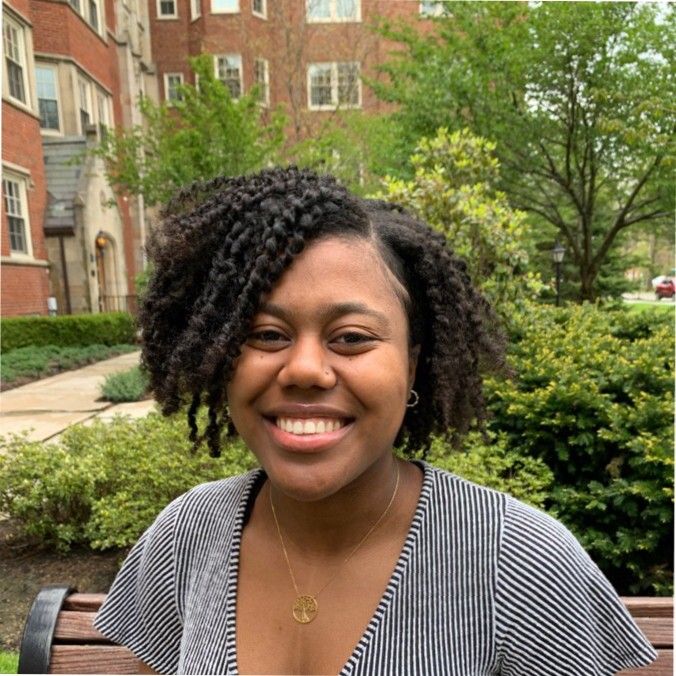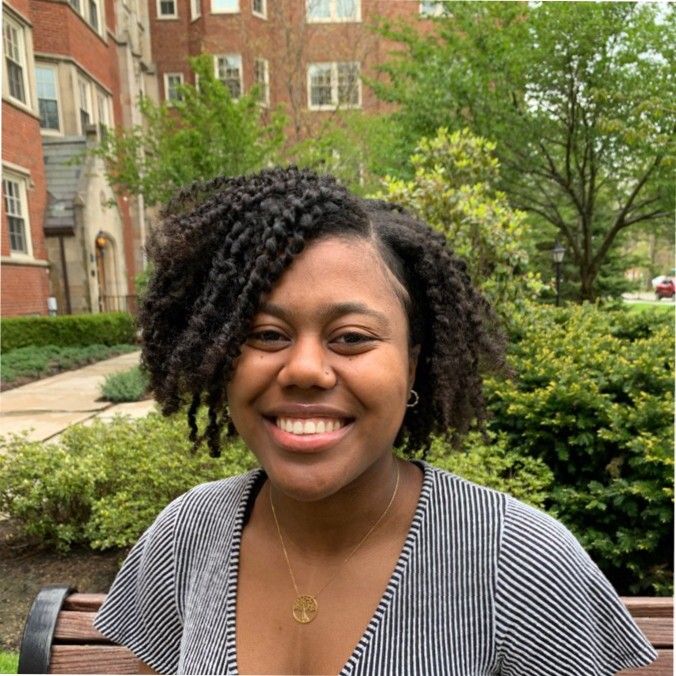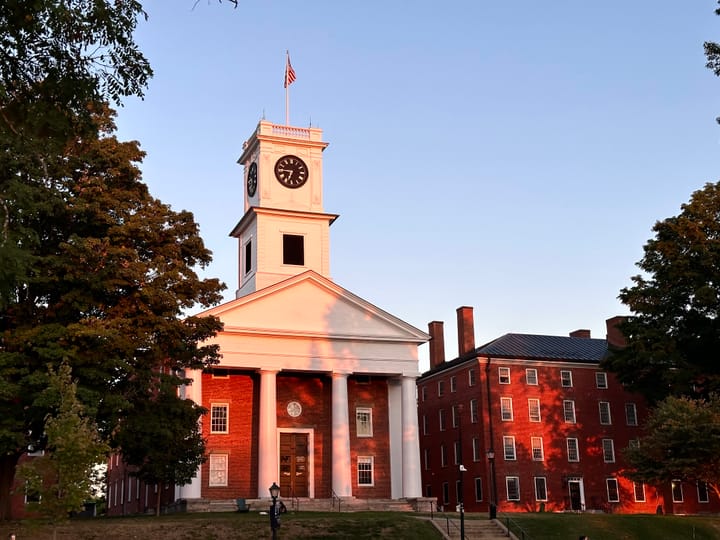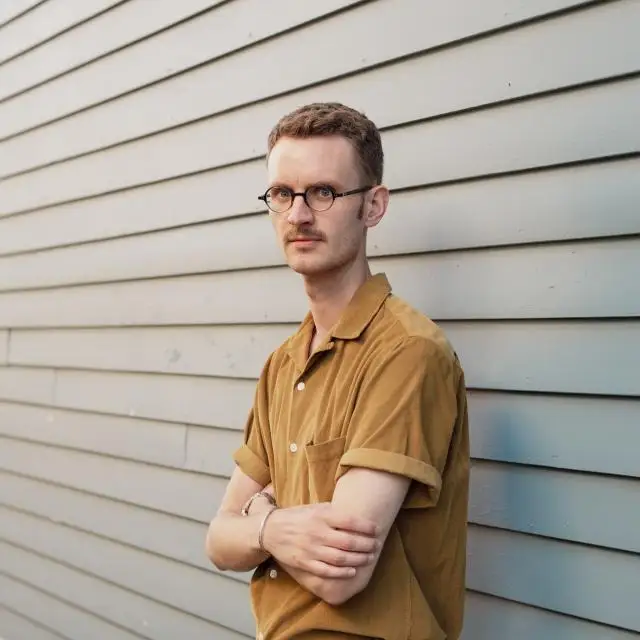Thoughts on Theses: Jade DuVal
Jade DuVal is an English major. Her thesis looks at how three primary sources use Black girls and Black girlhood as methods of empowerment and community building. Her thesis advisor is Professor of English Christopher Grobe.


Q: What is your thesis about?
A: I’m looking at the way my three primary sources — “Salvage the Bones” by Jesmyn Ward, Beyoncé’s “BROWN SKIN GIRL” music video, and the BlackGirlMagic hashtag — use Black girls and Black girlhood as methods of empowerment and community building.
Q: What sparked your interest in this topic?
A: I’ve been doing research on Black girlhood more generally since the summer after my freshman year. I started off looking at [Toni Morrison’s novel] “The Bluest Eye,” and then over time I felt like it was more exciting when I started looking at current things as opposed to something that came out 40 years ago.
Q: How did you decide to center your thesis around these three sources?
A: Well, I’m an English major, so I had to have a book. Someone recommended that I read “Salvage the Bones,” and after I read it, I was like, “I have to write about this.” And, [as for] the other two things, I wanted to do something more interdisciplinary that didn’t just focus on literature. Around the time I was looking for more sources, “Black Is King” came out and I saw the “BROWN SKIN GIRL” music video. The Twitter hashtag [#BlackGirlMagic] is just something that I’ve found really interesting.
Q: How have you managed to maintain interest in these sources throughout the thesis-writing process?
A: I feel like maintaining my interest in the sources themselves hasn’t been very difficult because they’re things that I enjoyed before I was doing specific research on them. It is hard to watch a music video over and over again, but it’s somewhat easier for me because I have different sources. I can jump from one to the other.
Q: Who is your thesis advisor and how have they contributed to the thesis writing process?
A: I started out with Professor [of English] Shayla Lawson as my advisor for the first semester. I have a different advisor for this semester because [Lawson] is on leave, but she really helped me get started with the basic resources in the field. She made me think about my sources in a deeper, more complex way, and I definitely would’ve been lost without her.
Q: What are some obstacles that you’ve encountered that you hadn’t expected? Do you have any tips for how to overcome them?
A: It’s difficult to find sources that do what you want them to do. It’s hard to sort through to see what is actually important and what’s not. Sometimes you’re like, “Oh, I’m writing all this stuff,” and it doesn’t really have anything that you’re writing about. You get into a lot of rabbit holes. What has been helpful for me is just to think very specifically about what I’m looking for, and what kind of source fits into my arguments, versus just finding a source and trying to fit it into my paper.
Q: Has anything you’ve done or encountered throughout the process surprised you?
A: As I went into it, I was thinking that I was going to do a completely critical thesis, but later I started working in personal narrative. I think that is actually something that helped me stay engaged throughout the school year, because my research is personal to me, and when you bring yourself into [the research], it has another layer.
Q: How have you woven personal narrative into your thesis?
A: For the part of my thesis about the “BROWN SKIN GIRL” music video, I compare that to things in my own life. When there are scenes with Beyoncé and her daughter, I’m comparing that to memories that I have of me and my mother.
Q: How does your thesis relate to current realities and experiences within Black communities?
A: The #BlackGirlMagic hashtag stands out because I think that’s being used in the media a lot. I feel like there’s a big movement in the Black community around empowerment and the way we speak about empowerment and BlackGirlMagic is a big part of that. It’s important to think about these things, and we should allow ourselves space to think about these things critically.
Q: Do you see your thesis contributing to future career plans, or is it more geared towards personal development?
A: I wanted to write a thesis to prove to myself that I could do it, but I’m also thinking about going to graduate school, so having that large piece of work would be helpful.
Q: Are there any skills you’ve learned from the thesis process that you want to take with you?
A: I feel like my critical thinking has gotten better from doing this. You also get a deeper appreciation for revision. Usually in classes you have such a short time to write an essay, but in writing [my] thesis, there are certain essays that I wrote and then started over from the beginning. At first it was really frustrating, but to get the product that you want, it’s worth it.
Q: What advice would you give to someone interested in writing a thesis?
A: I would say choose something that you’re really passionate about. Don’t write what you think people want to read; write what you want to write and what you believe in. No one really tells you how hard it is to write a thesis, so you have to have something to keep yourself motivated.





Comments ()